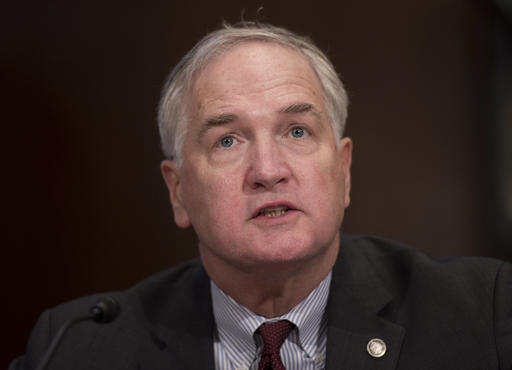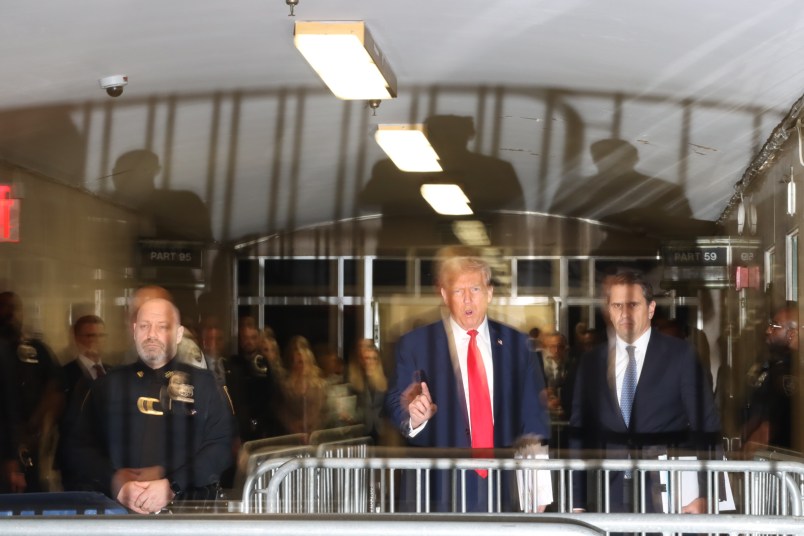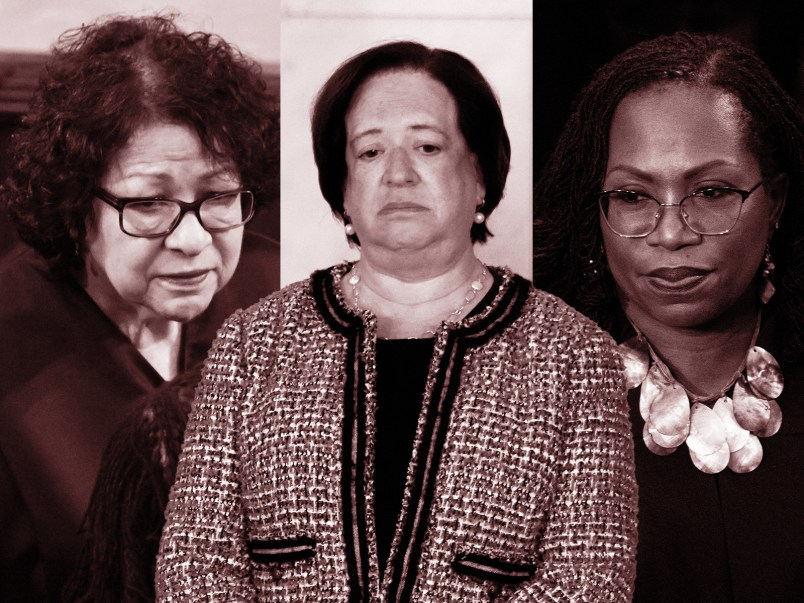MONTGOMERY, Ala. (AP) — Alabama Sen. Luther Strange was counting on support from President Donald Trump to help carry him to victory — or at least a runoff — in Alabama’s Republican primary on Tuesday, while his GOP rivals got in their last licks, calling him the candidate of the so-called Washington establishment.
“The final pitch is: Listen to President Trump. The key is someone who will support him in Washington. He’s endorsed me,” Strange said as he encouraged Alabamians to get out and vote.
The state’s Republicans and Democrats were eligible to select their party nominees in the race for the Senate seat vacated by Attorney General Jeff Sessions. The GOP race is testing the reach of both Trump and Senate Majority Leader Mitch McConnell. A super political action committee tied to McConnell spent millions of dollars on advertising to try to clear the way for Strange.
Trump’s approval rating has hit a new low of 34 percent, according to Gallup, but strong currents of support still flow through the white Republican electorate in Alabama, where the GOP candidates went all-out to attract Trump voters and throw shade on the Washington, D.C. “swamp.”
Still, there were signs of a lack of enthusiasm: Alabama Secretary of State John Merrill said Tuesday afternoon that turnout could be as low as 10 percent to 15 percent. He originally projected 20 percent to 25 percent. Typically, about 30 percent of eligible voters show up for primaries.
This is the most high-profile national election since white supremacists were blamed for deadly violence in Virginia this weekend, but the GOP contenders avoided criticizing Trump’s delayed condemnation of the hate groups involved, and political observers did not expect Trump’s response to tarnish the impact of his endorsement in the eyes of the Republican voters who do show up to the polls.
Trump recorded a Monday night robo-call urging voters to choose Strange, who was appointed to the seat and immediately found himself in a tight race against firebrand challengers including former Alabama Chief Justice Roy Moore, who has a strong following among evangelical voters, and U.S. Rep. Mo Brooks, a member of the conservative House Freedom Caucus.
Voting was steady at Saint James Methodist Church on the outskirts of Montgomery, where retired teacher Tommy Goggans said he turned out specifically “to keep Roy Moore from getting it.” Why? “He’s been kicked out of everything he’s done.”
Vernon Scott, 58, said he ultimately went with Brooks, because “it seemed like he was more on the path of where the Republican Party should be.”
The Democratic side is also crowded, but has escaped most of the drama of the bitter GOP race. Doug Jones, a former U.S. attorney under the Clinton administration, is perhaps the best-known Democrat and is backed by former Vice President Joe Biden and some other national party figures.
In the rural community of Gallant in northeast Alabama, Jimmy Wright, 41, showed up early Tuesday to vote for Moore.
Aside from being a neighbor, Wright said, he likes the way the ousted judge conducted his campaign.
“He’s the only one who hasn’t been talking crap about the others,” Wright said. Trump’s support for Strange didn’t matter to him, he said.
Strange said he believes the “momentum is on our side with the President’s tweet and robocalls,” but cautioned that off-year special elections can be unpredictable.
Brooks, meanwhile, hammered at Strange’s support from McConnell, asking voters Monday to send a message that “our Alabama Senate seat cannot be bought by special interests in Washington D.C.”
“Alabama has a chance to send a message, a huge message — not only to Washington D.C. — but the United States of America. We can send a message that we are tired of this do-nothing Senate,” Brooks said.
Brooks said he’s the candidate, not Strange, who best supports Trump’s agenda, including changing Senate filibuster rules.
Brooks told The Associated Press by telephone Monday that it would send “chills down the spine” of McConnell if he and Moore make a runoff.
Moore is considered a strong contender after gaining attention in the culture wars. Moore was twice removed from his duties as chief justice over his public display of the Ten Commandments and his resistance to gay marriage.
“This is a very, very critical election. It’s a critical time in our country. Whether we move forward or we stay stagnant and do nothing,” Moore said. “I think the Washington crowd is watching this race because it’s kind of a bellwether.”
Strange was Alabama’s attorney general before he was appointed to the Senate in February by Gov. Robert Bentley, who soon resigned in scandal. Strange said he did Bentley no favors, but his challengers questioned the ethics of seeking the appointment while investigating the governor.
The crowded GOP field increases the odds none will get a majority on Tuesday, putting the top two finishers in a September runoff. Other Republicans on the ballot include Sen. Trip Pittman and Christian Coalition leader Randy Brinson.
The Democratic side also includes environmental advocate Michael Hansen, who has urged Democrats to fully embrace progressive positions, and Robert Kennedy, Jr., a Navy veteran, unrelated to the famed Massachusetts political dynasty, who calls for building bridges with Republicans and independents.
While Alabama has not elected a Democrat to the U.S. Senate in more than 20 years, some Democrats hope the special general election in December — particularly if Republicans end up with a polarizing nominee — could give them a chance.









